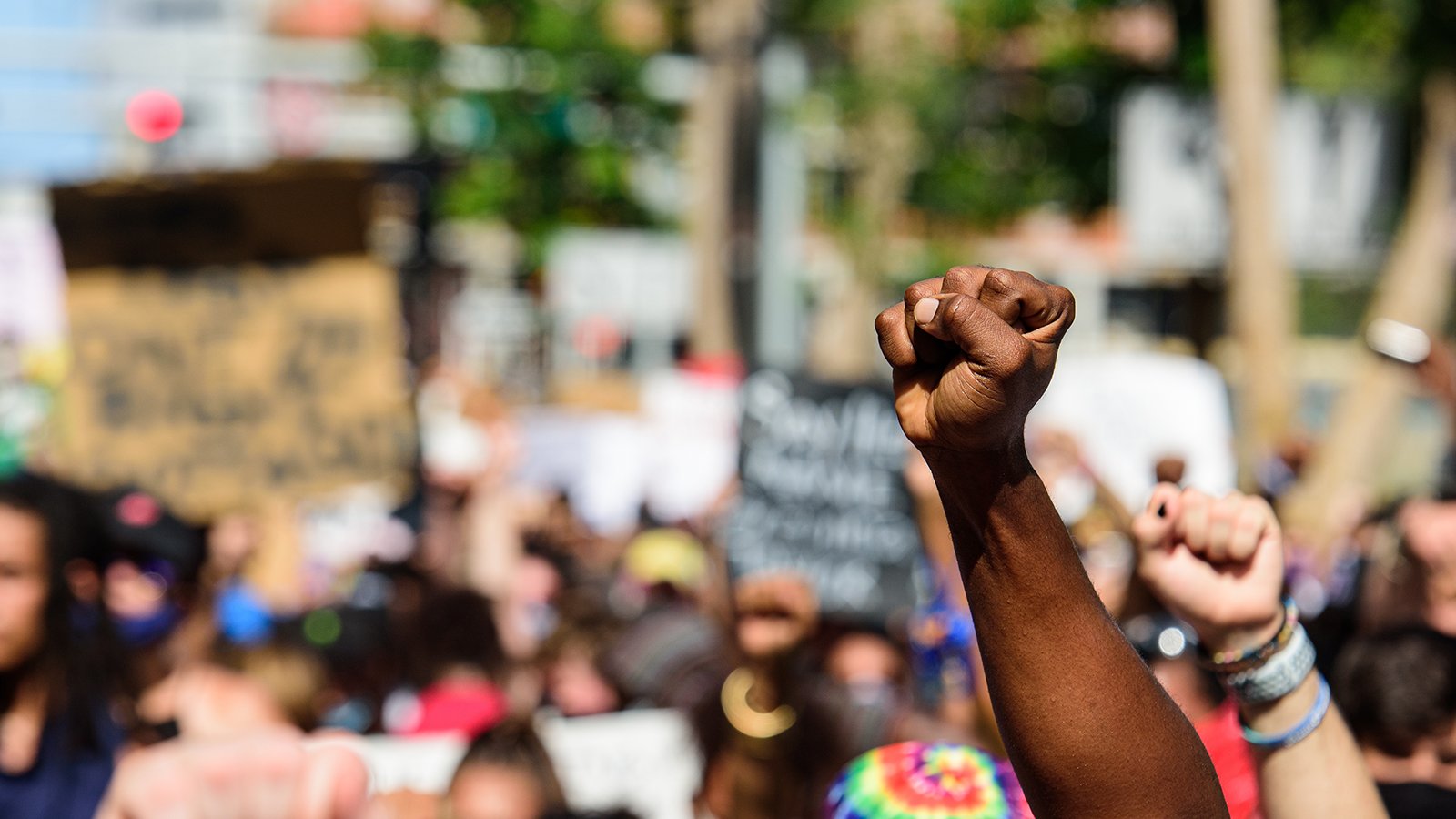When it is not only individuals who discriminate...
Institutional and structural racism is often less visible than racist hate crime, but is just as damaging. Only through consistent action by European governments can we overcome the entrenched racist structures in our societies.
On 19 February 2020, nine people were shot dead by a racist right-wing extremist in an attack in Hanau. At the vigil that followed, German President Frank-Walter Steinmeier spoke out against hatred, racism and violence, appealing: "Let's accept the responsibility that falls to all of us and pay attention to our language - in politics, in the media and everywhere in society! Let us speak out when individuals or minorities in our country are denied their dignity."
A few years later, the figures paint a sad picture: in 2020, the Federal Ministry of the Interior recorded 9,420 'xenophobic crimes'; in 2023, there were 15,087 - an increase of 60 per cent. Around 77 per cent of these crimes were politically motivated by the extreme right.
Racism as a structural problem
Hate crimes and racist violence by individuals are often cited in discussions of racism because, if reported, such cases can be documented and counted. But other, less obvious forms are no less dangerous: institutional and structural racism. This refers to the exclusion and devaluation of people by social institutions on the basis of their origin, skin colour or religion. Such discrimination arises from the interpretation or application of rules or ingrained practices. In addition, historically and socially developed power structures influence the discourse, images and even the representation of certain groups in politics, administration and the economy.
Ferda Ataman, the independent Federal Anti-Discrimination Commissioner, and others have recognised the problem and, in the 2024 Status Report 'Discrimination in Germany', call for the General Equal Treatment Act (GETA) to be extended to include state action, because "If [people] are discriminated against by public authorities, the police or the judiciary, they cannot use the GETA to defend themselves - unlike in a supermarket or restaurant. This does not do justice to the role model function of the state."
Who is particularly affected by structural racism
Of course, institutional and structural racism is not just a German problem. This is impressively demonstrated by a study by the Brussels-based Migration Policy Group (MPG), funded by the Robert Bosch Stiftung, in eight EU member states: Germany, the Netherlands, the Czech Republic, Greece, Spain, Romania, Latvia and Sweden. The report describes how certain ethnic groups are systematically disadvantaged in everyday areas such as housing, education, healthcare and the labour market, as well as in their interactions with the police and justice system. The report highlights how structural racism disproportionately affects Roma, people of colour and Muslims, as well as the Sámi population in Sweden, while racism against Asians and anti-Semitism are under-reported. And it shows that most countries still view racism as an individual rather than a structural phenomenon - in contrast to the EU's 2020-2025 Action Plan against racism - and therefore take insufficient action.
"The responsibility lies not only with well-meaning people, but above all with the state and its institutions, which have the means, through legislation and law enforcement, to ensure participation and justice for all."
What can be done about institutional and structural racism in Europe
It is a fact that different countries are at different stages in their fight against racism and discrimination. At the same time, developments in recent years have shown that in volatile societies and highly charged public environments, only serious action can make a difference. But what might this look like in concrete terms? The MPG report offers clear recommendations:
Where they have not already done so, national governments should put in place comprehensive anti-racism plans that cover all sectors of society and set clear standards for tackling structural racism. One basis for this would be the collection of anonymised equality data to better understand structural racism, make it accountable and create transparency.
National governments should enact legislation that identifies structural racism on the basis of a clear definition and effectively sanctions violations of the principles of equal treatment. This includes the state acknowledging past injustices and helping to heal the emotional wounds of ethnic groups through public apologies.
At national and European level, representatives of groups that have been subject to racial discrimination should be involved in policy processes. This will ensure that their specific challenges are taken into account and that policies are developed to meet real needs.
National governments should ensure that people who have experienced racism, whether individual or structural, have access to appropriate remedies without delay or cost. Class actions should also be possible in the area of discrimination.
The state is responsible
Racism remains deeply rooted in European societies. This has a massive impact on those affected and their trust in politics and the community, but also on collective cohesion. It is therefore all the more important to name racism clearly and to recognise the institutional and structural disadvantage and degradation of entire groups. Responsibility for this lies not only with well-meaning individuals, but above all with the state and its institutions, which have the means to ensure participation and justice for all through legislation and law enforcement.

